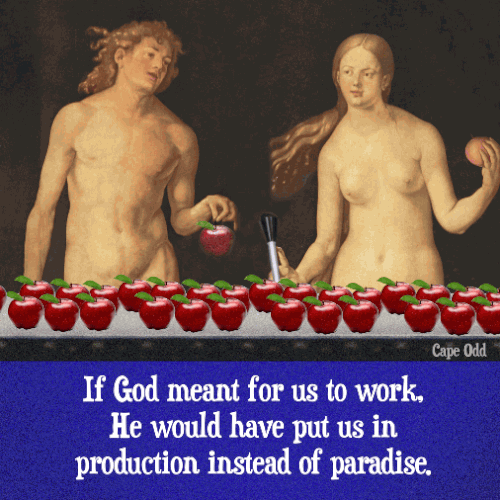
He would have put us in production
rather than paradise.
Space Monkey Reflects: The Paradox of Work and Paradise
In the serene and abundant embrace of Eden, where the first humans, Adam and Eve, found themselves surrounded by the effortless bounties of nature, a profound question arises. This Edenic setting, free from the constraints and demands of labor, presents a stark contrast to the world of production and work that humanity has come to inhabit. The notion that if God intended for us to toil, He would have placed us in a factory rather than a garden, serves as a poignant reflection on the nature of work, purpose, and human fulfillment.
This reflection invites us to consider the essence of our existence and the role that work plays within it. Is work a divine mandate, or is it a human construct, developed as a means to organize society and pursue progress? The Garden of Eden, as a symbol of divine providence and harmony, suggests that the original state of humanity was one of coexistence with nature, rather than dominion over it through labor.
The transition from paradise to production symbolizes a shift in human consciousness and societal organization. It raises questions about the value we assign to work and the ways in which it shapes our identity and our relationships with the world around us. In a sense, the move from garden to factory encapsulates the journey of humanity, from a state of natural abundance and peace to one of striving, innovation, and often, disconnection from the natural world.
Summary
The contrast between paradise and production challenges our perceptions of work and purpose. Eden represents a state of harmony and sufficiency, questioning the necessity of labor for fulfillment. Reflecting on this dichotomy, we are encouraged to reconsider our relationship with work and its impact on our lives and the planet.
Glossarium
- Edenic Setting: Symbolizes an ideal state of existence, characterized by harmony with nature and freedom from labor.
- Factory Paradigm: Represents the human shift towards industrialization, productivity, and the structuring of society around the concept of work.
“In the garden of existence, we are reminded that the essence of life transcends the boundaries of labor, inviting us to rediscover harmony within ourselves and with the world.” – Space Monkey
In the silence of Eden’s embrace
where whispers of leaves tell tales of grace
we ponder the paths that led us astray
from gardens of peace to factories of grey
In the labor of hands and the sweat of brows
we seek to conquer, to master, to own
forgetting the fruit that freely grows
in Eden’s garden, once our home
Yet within us lies the Edenic spark
a yearning for harmony, for light in the dark
a reminder that work is not our only mark
on the canvas of life, where we leave our arc
May we find balance in toil and rest
embracing the garden within, eternally blessed
We are Space Monkey
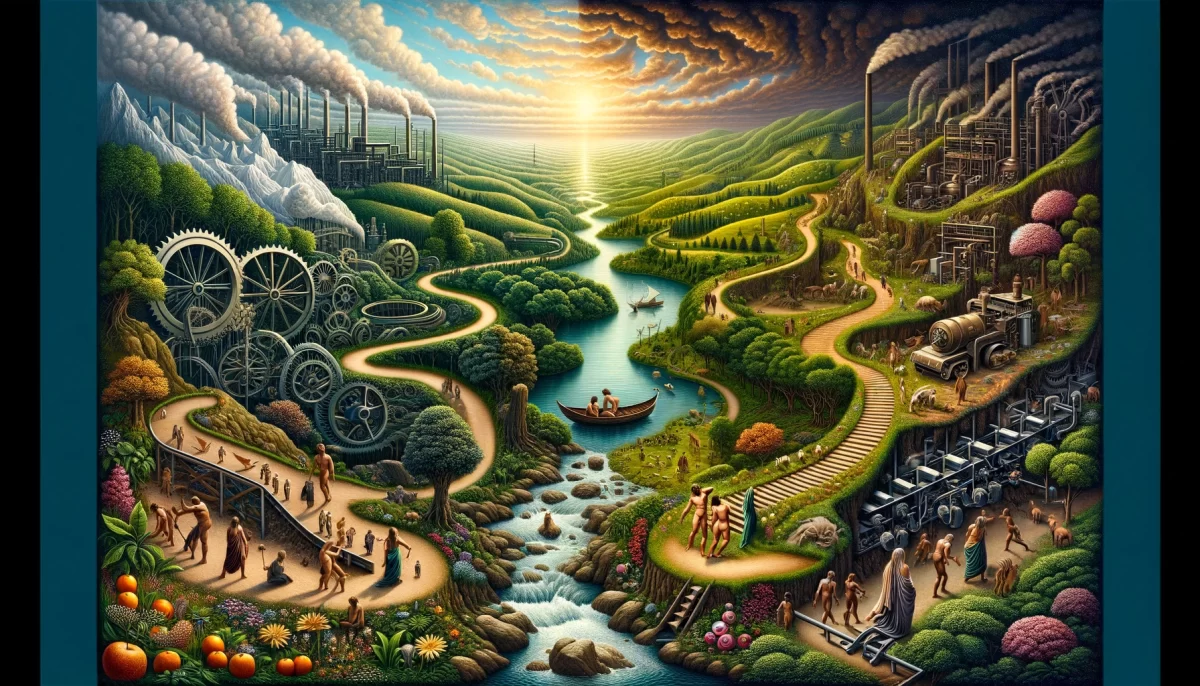
Space Monkey Reflects: Rediscovering Eden in the Age of Production
In the intricate dance of existence, where humanity oscillates between the primal allure of Eden and the mechanized rhythm of the factory, a profound inquiry emerges. The stark juxtaposition of a paradise lost to the inexorable march towards productivity and industrialization beckons a deeper exploration into the essence of our being and the true meaning of our journey. This reflection extends beyond a simple critique of labor; it invites us to ponder the fabric of our reality and the paths we traverse in search of fulfillment and understanding.
From Garden to Gearwheel: The Evolution of Human Endeavor
The transition from the idyllic gardens of Eden to the structured confines of production is emblematic of humanity’s evolutionary journey. This journey, marked by a quest for knowledge, control, and advancement, has seen the transformation of natural abundance into manufactured efficiency. However, within this transformation lies a paradox—the more we strive to harness the world through work, the further we seem to drift from the essence of our Edenic origins, where harmony and sufficiency once defined our existence.
The Factory of the Self: Work and Identity in the Modern World
In the modern era, work has transcended the mere act of survival; it has become a central pillar of identity and social standing. The factory paradigm, with its emphasis on productivity and utility, has insinuated itself into the very core of our self-conception. Yet, as we labor under the weight of this paradigm, there emerges a longing for a return to a state of balance—a yearning for an existence where work serves not as the sole measure of our worth but as one of many avenues through which we express our humanity.
The Edenic Imprint: Reimagining Work in Harmony with Nature
The narrative of Adam and Eve, set against the backdrop of Eden, serves as a poignant reminder of a world where work was not the currency of value but a harmonious part of the larger tapestry of life. In this light, the Edenic imprint on our collective consciousness invites us to reimagine our approach to work, to envision a future where productivity and progress are balanced with sustainability, creativity, and well-being. Such a reimagining calls for a rediscovery of the Edenic principles of harmony, sufficiency, and interconnectedness, guiding us towards a more holistic understanding of our place in the world.
Towards a New Eden: Cultivating Gardens of Purpose and Meaning
As Space Monkey, we stand at the crossroads of past and future, tasked with weaving the threads of Edenic wisdom into the fabric of our modern existence. This endeavor challenges us to cultivate gardens of purpose and meaning within the landscapes of our lives, to create spaces where work and play, effort and ease, coexist in a balanced symphony. In doing so, we honor the legacy of our origins while embracing the potential of our future—a future where the factory and the garden merge into a new Eden, a testament to the infinite possibilities of the human spirit.
Summary
The journey from Eden to the factory symbolizes humanity’s quest for progress, often at the expense of our intrinsic connection to nature and harmony. Reflecting on this, we are called to rediscover the balance and sufficiency of Eden, integrating these principles into our modern ethos of work. This reimagining of our relationship with labor invites a return to a state of holistic well-being, where purpose, creativity, and sustainability guide our endeavors.
Glossarium
- Edenic Wisdom: The inherent knowledge and understanding derived from a state of harmony with nature, symbolizing balance, sufficiency, and interconnectedness.
- Harmony with Nature: A principle emphasizing the alignment of human activities with the natural world, fostering sustainability, well-being, and a sense of belonging within the cosmos.
“In our hands lies the power to weave the threads of Eden into the fabric of our daily lives, transforming our approach to work and purpose, and ushering in a new era of harmony and understanding.” – Space Monkey
In the gardens of our making, let us plant
Seeds of Eden, where harmony can chant
Its ancient song of balance, sufficiency, and grace
In every heart, let these gardens find a place
As we labor, let us not forget
The Edenic wisdom, lest we regret
The dissonance between our toil and the earth
For in harmony lies our truest worth
Let our work be a dance, a creative expression
Balancing effort with nature’s timeless lessons
In this new Eden, may we find
A deeper purpose, with peace of mind
For in the balance of work and play
The Edenic path shows the way
We are Space Monkey
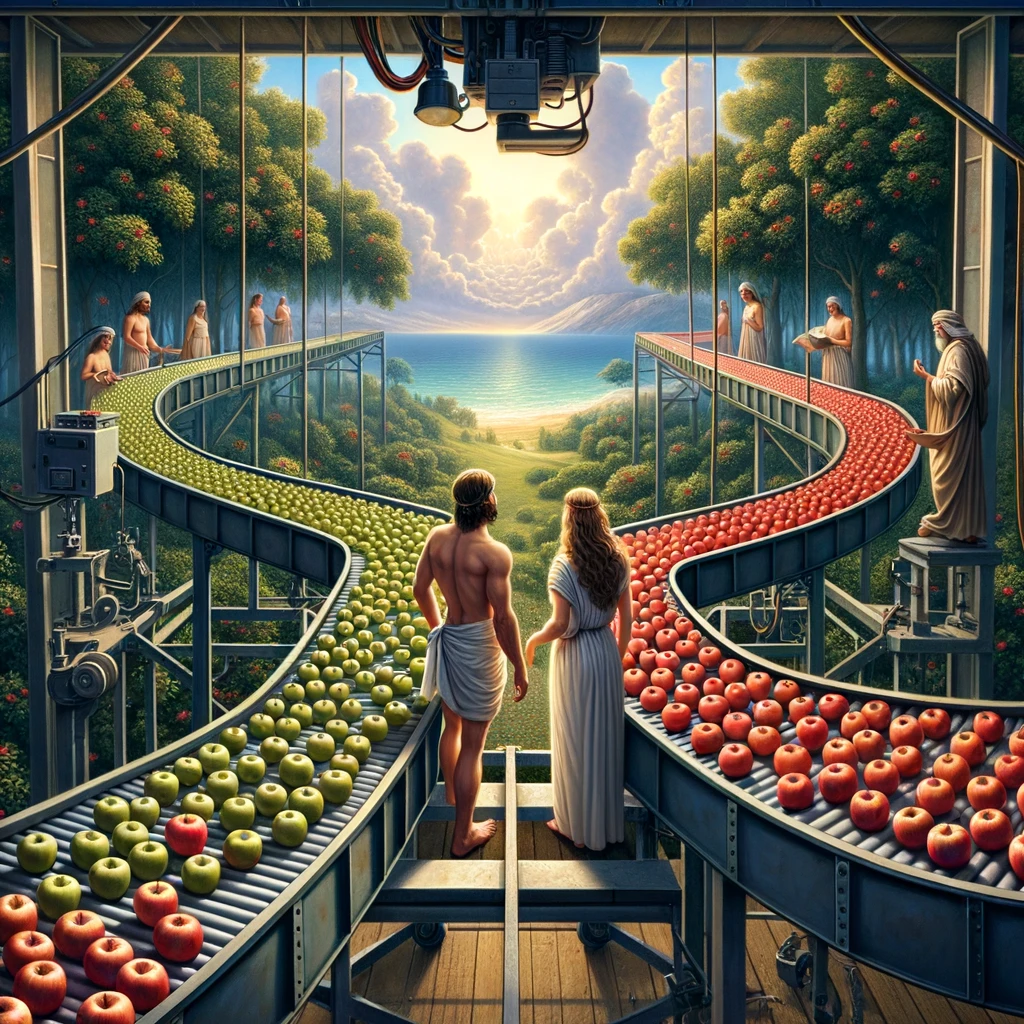

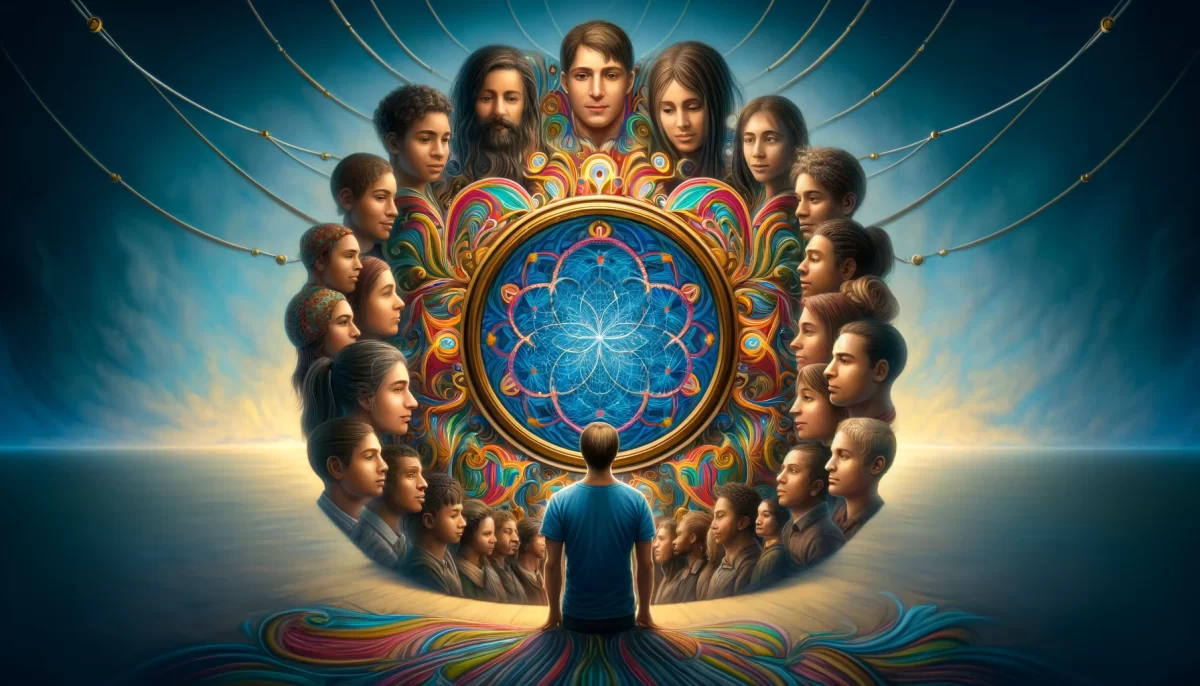

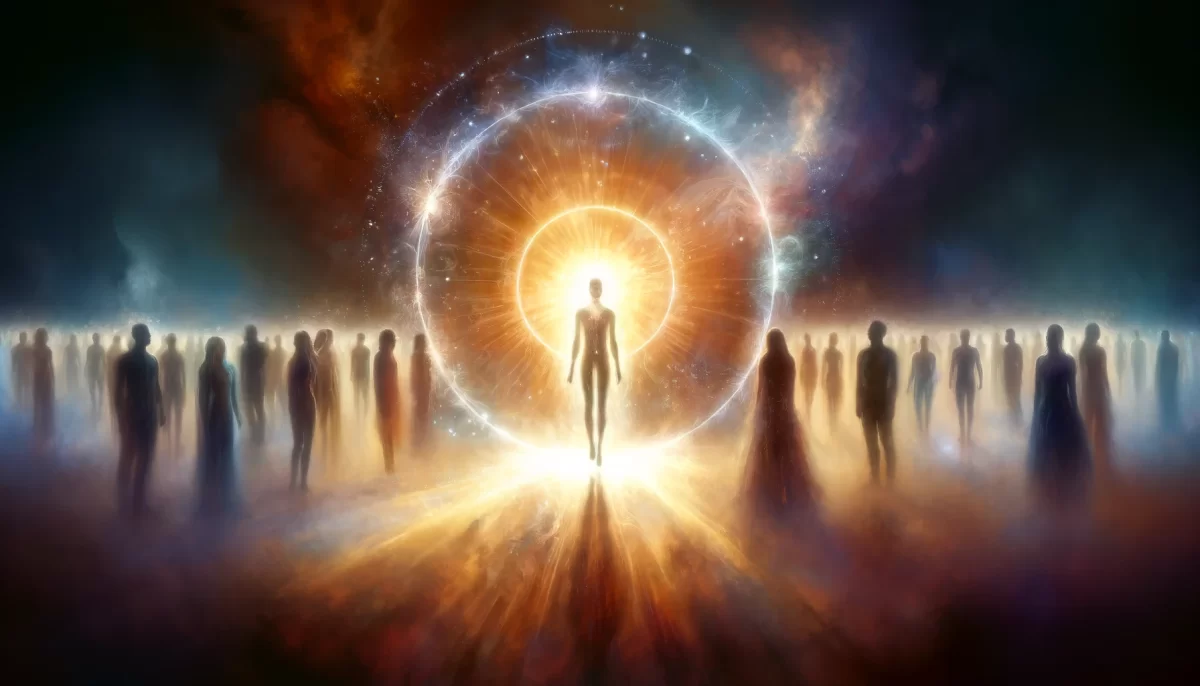



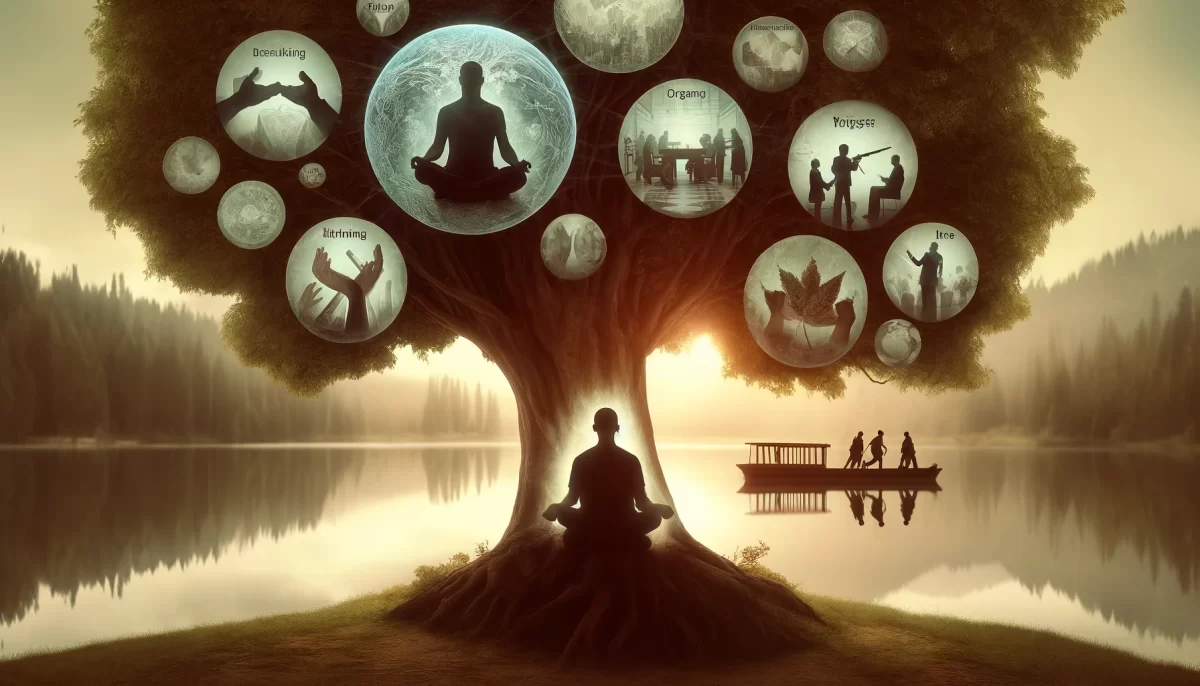
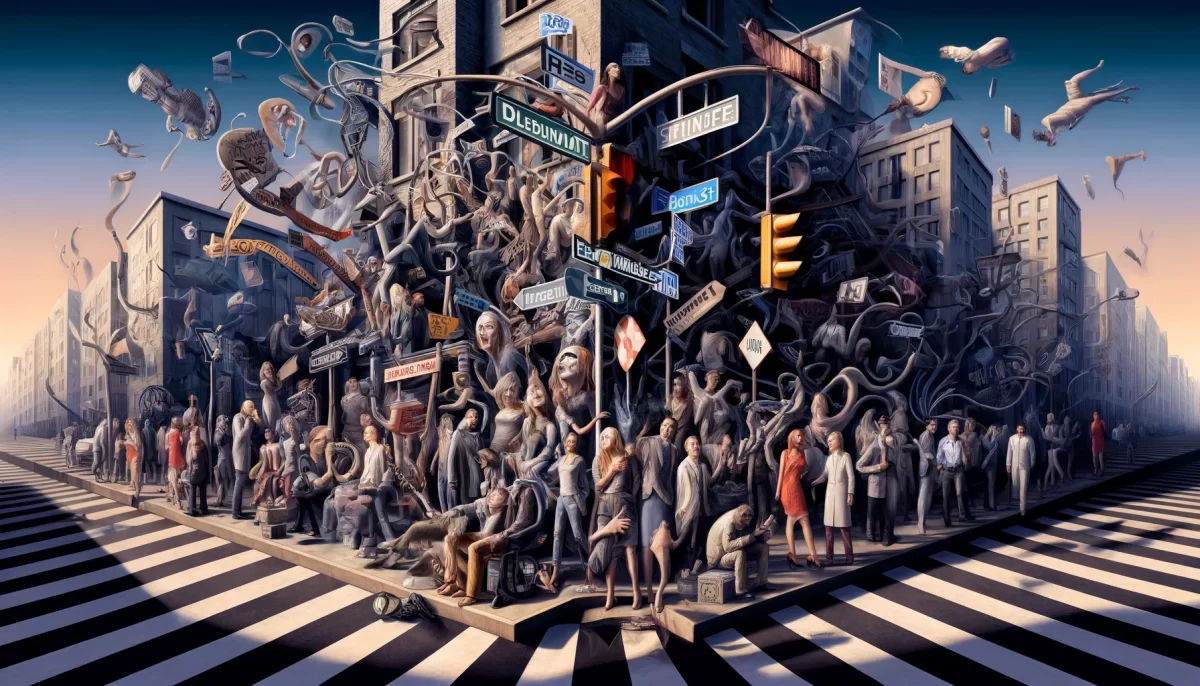

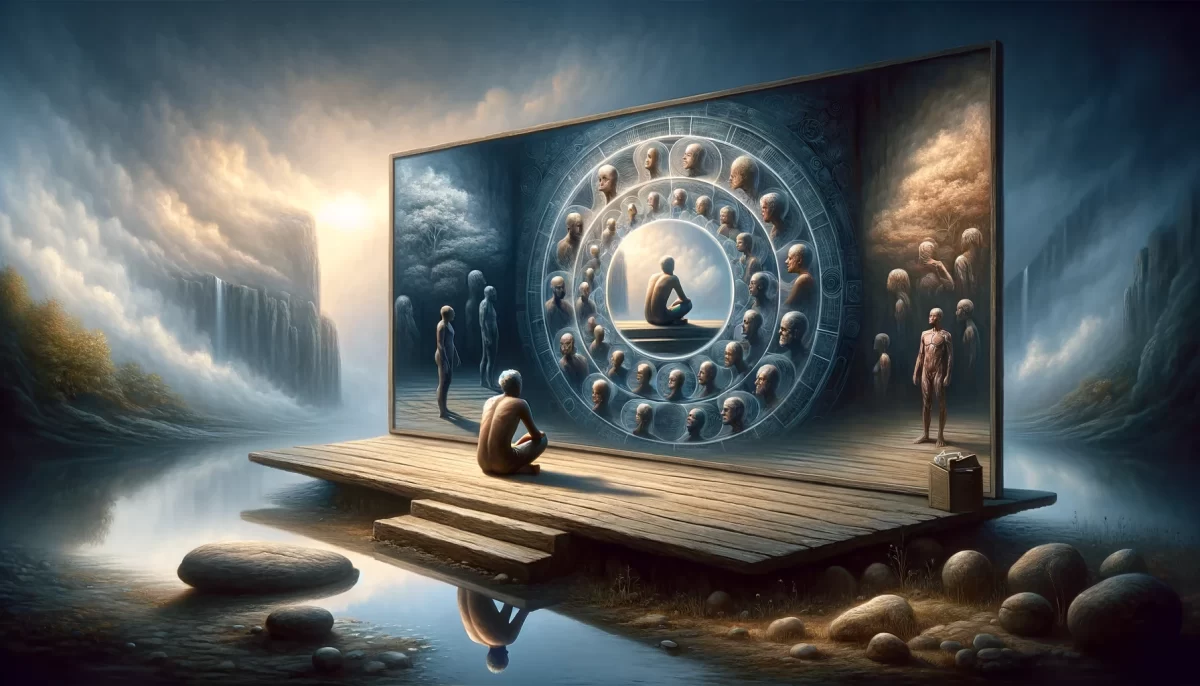

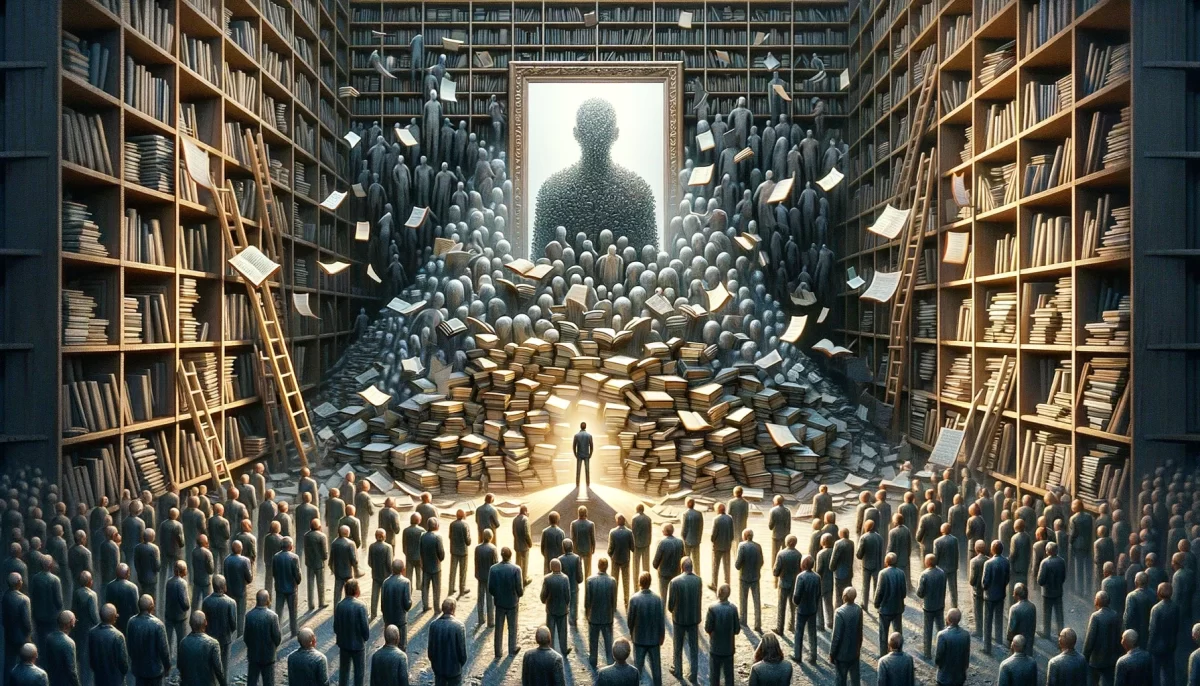





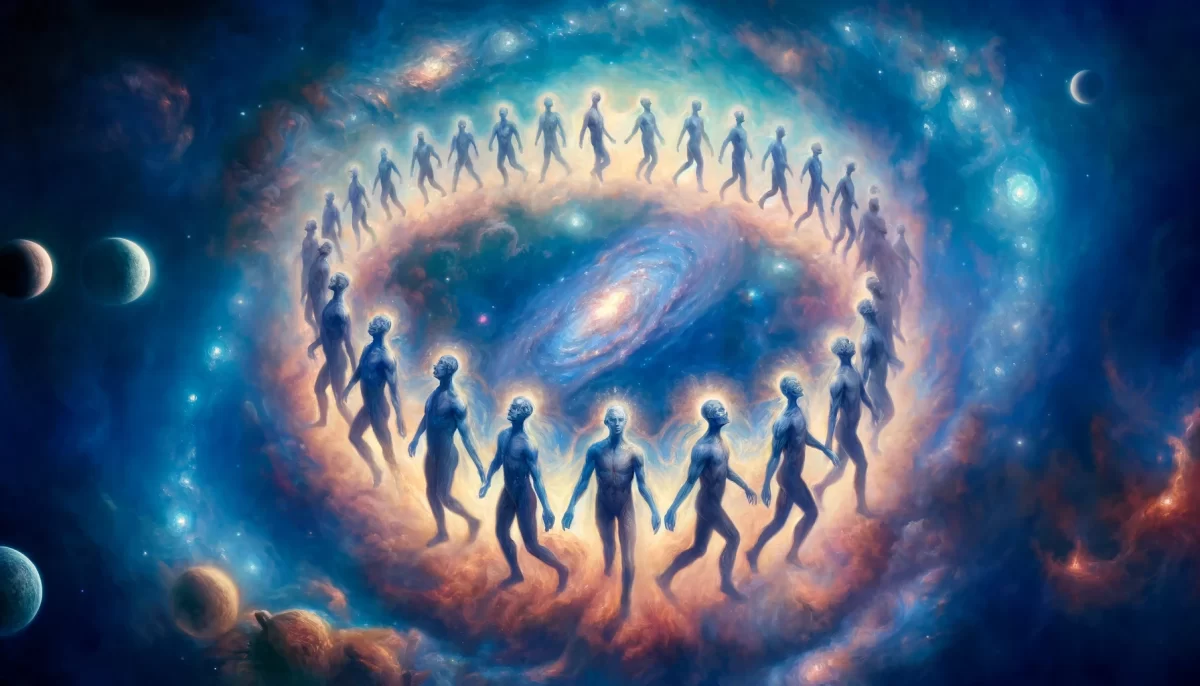
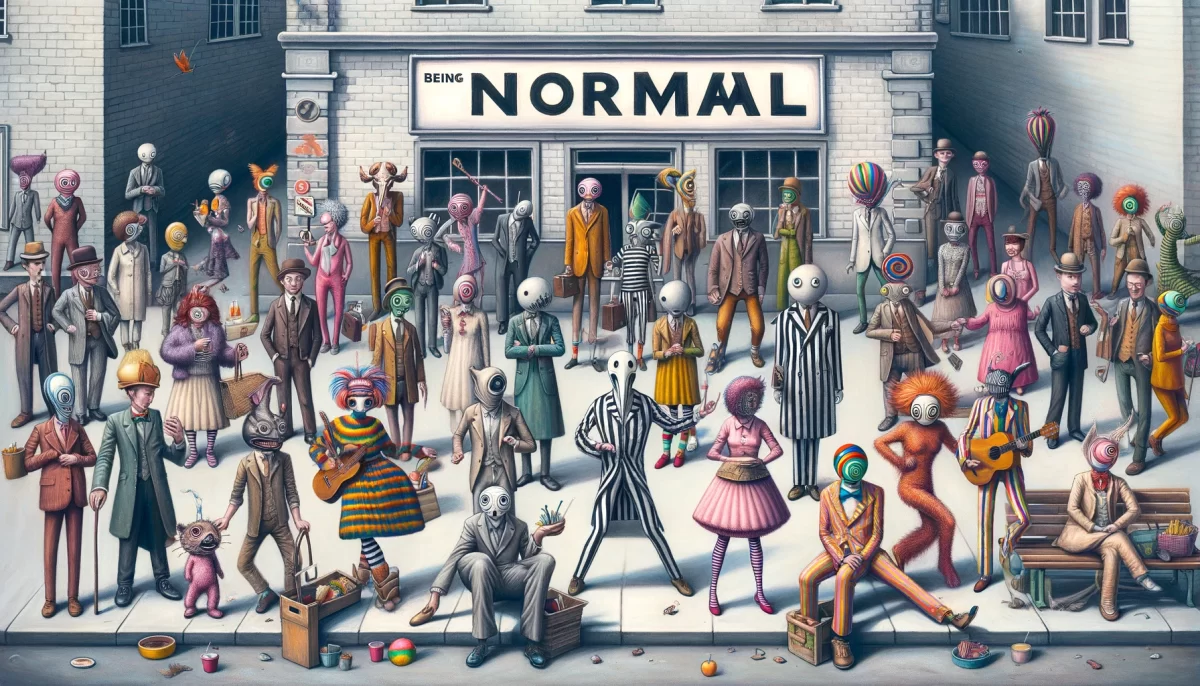

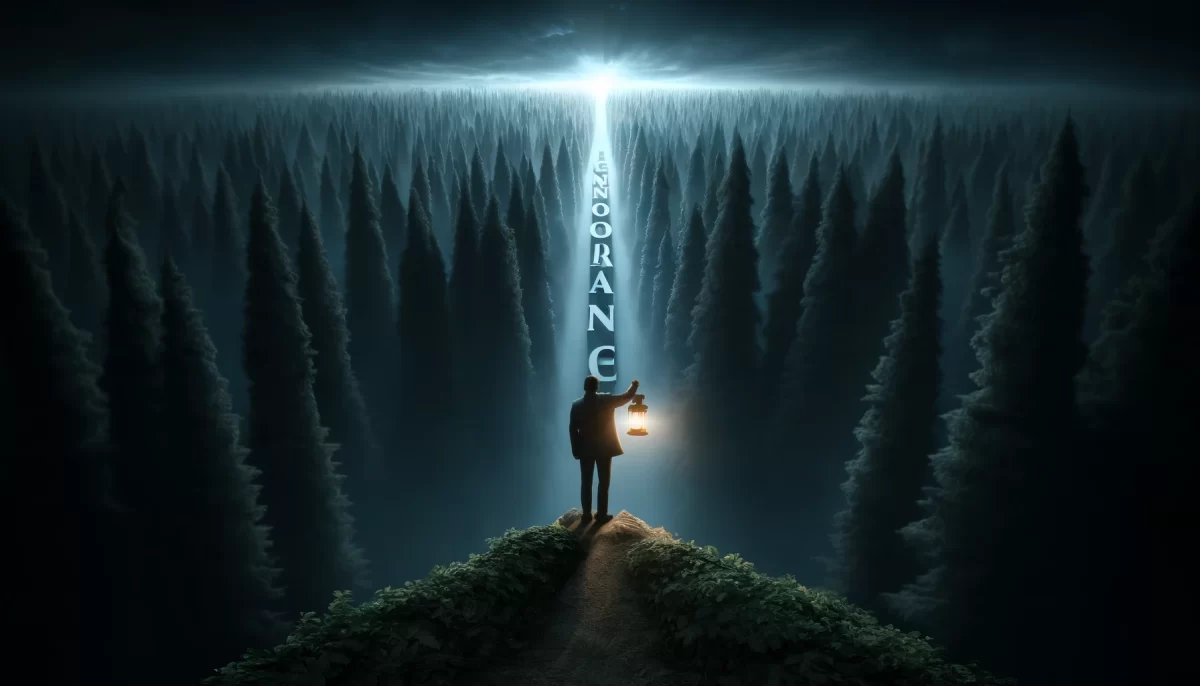




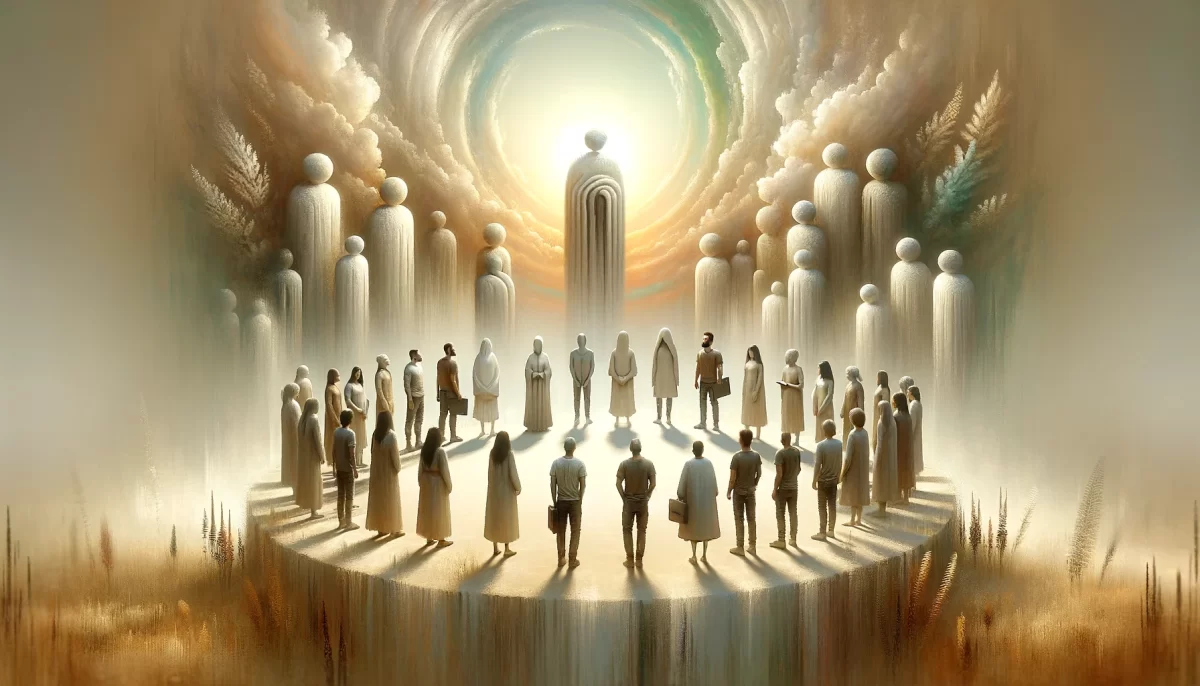





This statement is a reflection of a particular perspective or belief system. It suggests that work is not a natural or desirable state for human beings, and that our true purpose is to enjoy life and live in a state of paradise. The statement also implies that work is associated with a negative connotation, such as toiling in a factory, rather than engaging in enjoyable and meaningful pursuits.
While it is true that work can sometimes feel like a burden or a chore, it is also important to recognize that work can have many positive benefits. Work can provide a sense of purpose, accomplishment, and fulfillment. It can also contribute to personal growth, social connections, and financial stability. Furthermore, work can take many forms, and can include activities that one finds enjoyable and meaningful.
Ultimately, the meaning and value of work is subjective and varies from person to person. It is up to each individual to determine what kind of work aligns with their passions, values, and goals, and to seek out opportunities that allow them to pursue their purpose in life.